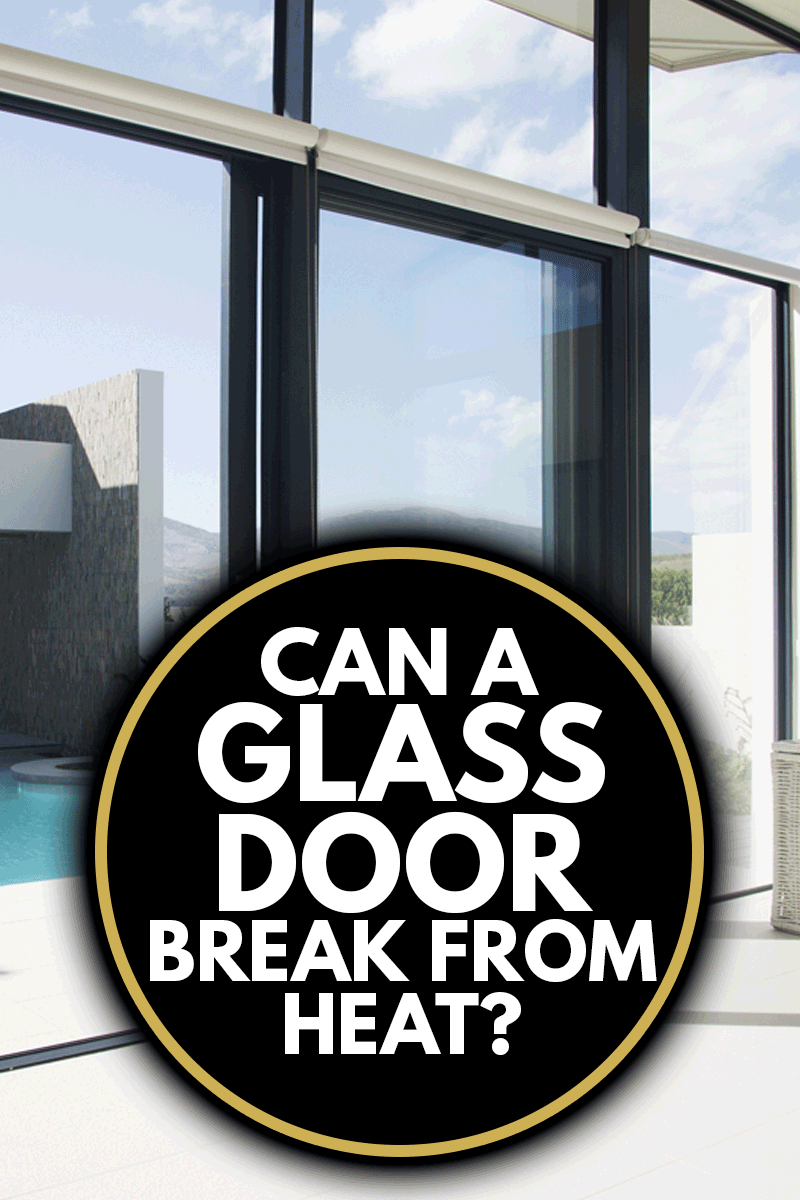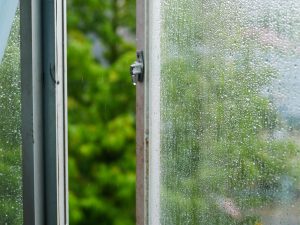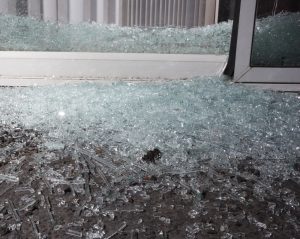Despite technological advances, you may have heard of spontaneous glass door breakage where most who have experienced it heard a loud pop initially followed by a crashing sound. Although no typical pattern has been noted, most would claim temperature fluctuations around the time they experienced the breakage. This leaves us to wonder, can a glass door break from the heat? We researched the topic, and below is an account of what we found out.
Several factors have been identified to contribute to spontaneous glass door breakage. One includes temperature stress. Exposure to high temperatures will cause the glass to expand. The presence of internal defects or impurities such as nickel sulfide causes some imbalance in the structural framework of the glass as it develops, which, when it reaches its breaking point, leads to cracking.
To understand it further, let's look into the temperature where a glass breaks and how a glass door shatters. Keep reading also for the process of making tempered glass and what makes it more robust than ordinary or annealed glass.

At which temperature does glass break?
Subjecting glass to high heat (>300°F) can cause the glass to shatter. Excessive temperature variations can also lead the glass to break.
Can tempered glass doors break from heat?
If the temperature exceeds greater than 300°F, then the glass can spontaneously shatter. However, as this is not the case in most instances, heat can trigger the break but not entirely cause it.
Pre-existing mechanical defects can magnify and push the breakage when constantly exposed to high or fluctuating temperatures since the glass will constantly expand and cool. When present, these changes expand the glass and NiS, which may be responsible for microbreaks present internally in the glass.
What would cause a glass door to shatter?

Several reasons have been identified to cause a glass door to shatter. Some of which are thermal stresses that are a result of high-temperature variations or rapid temperature fluctuations.
When the glass is exposed to higher temperatures, both the glass and impurities expand, which can cause minor breaks. It is said that nickel-sulfide can still be incorporated into the glass even after the installation, as direct exposure to sunlight can cause thermal variations to the structure. Constant exposure to high temperatures can also expand the nickel-sulfide and make its way further into the glass.
Tensile strength is also altered when glass is subjected to high temperatures. So, a pre-existing defect may be magnified when the glass is exposed to high or fluctuating temperatures. They also invariably affect the other reasons identified below:
1. Mechanical Stresses
These may be introduced during installation as nicked edges or tight frames are not allowing room for the glass to expand. These minor damages introduce small breaks, which can develop into more significant cracks that can spread through the glass when exposed to higher tensions.
Most spontaneous breakage occurs with no high impact pressure identified. Reports would always state that it happened instantaneously with no one around.
2. Intrinsic Defects
The defects occur during the process of tempering or even prior to when the glass is being manufactured. While there have been more than 50 various impurities or floats present in the glass, nickel-sulfide (NiS) bears the most importance. It has been implicated in most tempered glass breakage. It is said that it can occur in 1 to every 500 tempered glass created. The use of stainless-steel machinery during manufacturing can lead to its inclusion.
How is glass tempered?
Tempering can either be done via heating or chemical process, with the former being more widely used. The heating process involves passing the glass through high temperatures then cooling it using high-pressure air within seconds after it is heated.
On the other hand, chemical tempering allows the glass to interact with chemicals that provide an exchange of ions within the glass. However, this is more costly, disallowing widespread use of the process.
Before a glass is tempered, it is preferred to cut the glass in the exact shape and size that you desire. It is also recommended to check the glass for any imperfections or defects before tempering. Cutting or processing the glass after it has been tempered can alter the strength of the glass or introduce mechanical flaws that can increase its risk of breaking.
Once the preliminary steps have been done, the glass can now be passed through the tempering oven with a temperature of at least 1112°F (industry standard being 1148°F).
After heating, the glass undergoes quenching. This is done by subjecting the glass to high-pressure air delivered via several nozzles exposing the glass in multiple angles over a short period, usually lasting only seconds. This cools the surface of the glass faster than the center, therefore, shrinking the surface. What happens is that the surface is compressed while the center remains in tension. And this provides strength to tempered glass.
A tempered glass per industry standard can withstand five times the pressure of what annealed or ordinary glass can withstand. While annealed glass will break at 6000 pounds per square inch, tempered glass will shatter if the applied pressure is 24000 psi or more.
Less may be said if the impact is introduced as a side impact, as even a mild blow to the edge can cause it to shatter. But when it happens, it breaks into small tiny pieces rather than large, sharper shards. This is the reason why in areas where human safety is a priority, you will always find tempered glass being installed rather than annealed glass.
What makes the shower door shatter?
Shower door shattering has been observed more in frameless doors compared to those installed with frames. The theory involved is that the processing after the glass has been tempered tends to affect the strength of the glass and introduces small breaks in the glass. These breaks may be either through burring the hole to attach the hinges or during sanding of the edges.
Once the glass is installed via the hinges, the small breaks can spread in the attachments' areas. And when pressure is applied, no matter how low, it can disrupt the integrity of the glass and cause shattering.
How do you stop a glass shower door from shattering?
Even low-impact blows can shatter a shower door, especially when there are micro cracks present. The sad part is that there is no way to determine the presence of these cracks. Therefore, it is prudent to treat your shower doors gently—don't slam them or push them too hard. Avoid pressing on the glass when opening or closing but use the handles or jams.
If your shower door has a frame, have it checked regularly by a professional to ensure that the tracks are adequately padded not to introduce nicks or cracks on the glass edge. Direct interaction of glass to the metal frame can nick the edges.
The sides and top of the frame should also have ample allotment for glass expansion. Otherwise, the glass can remain stuck in the frame, and once it has reached its limit, it can lead to spontaneous breakage.
Also, make sure to clean the doors regularly to avoid the deposition of dirt and grime. Dirty doors lead to more vigorous cleaning, and you don't want that on your tempered glass.
Choosing a glass door that has undergone heat-soaked treatment can also reduce the chances of spontaneous breakage. Although it does not guarantee 100% treatment, it can artificially age the glass, which reduces the chances of spontaneous breakage. But this will come with a higher price tag.
In Summary

It is essential to invest in your glass pane doors, especially when installed in high traffic areas of the house such as patio, shower, and bathroom. Additional treatments such as heat soaking may be essential to prevent spontaneous breakage due to high temperatures.
Source your glass pane doors from trusted sources and those that meet country standards. Regular maintenance and check of these doors can also pre-empt potential breakage as you can spot minor damages early on.



